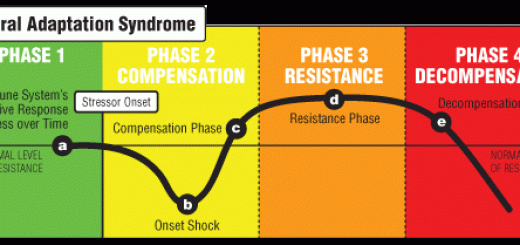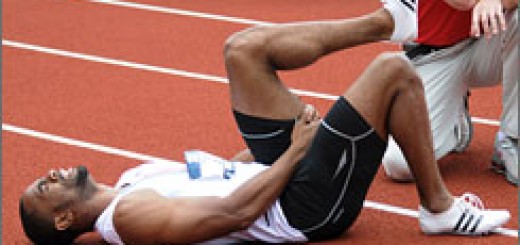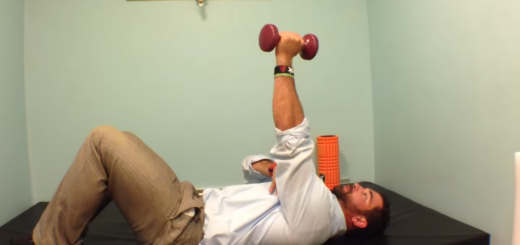 I recently coached at an academically rigorous private high school where expectations on students were pretty high in all areas. During my time, I perceived that there was a very high fear of failure among most students. While this was certainly not an empirical study, it led me to take a look at the research out there that examines this phenomenon.
I recently coached at an academically rigorous private high school where expectations on students were pretty high in all areas. During my time, I perceived that there was a very high fear of failure among most students. While this was certainly not an empirical study, it led me to take a look at the research out there that examines this phenomenon.
A new study from two universities in England looks at this topic and found that “heightened cognitive anxiety, brought on by the competitive scenario, really does affect performance abilities in physically active people — and the same is likely to apply even for trained athletes” (Coventry University, 2014). In addition, I was fortunate to look at competitive anxiety in NCAA Division III men’s basketball players during my dissertation. By comparing traditionally ranked and unranked teams levels in the areas of sport self-confidence and competitive anxiety, I found that teams that were traditionally ranked had higher levels of confidence and lower levels of competitive anxiety (Rice, 2005). Competitive anxiety can lead to fear of failure in many athletes.
Dr. Sam Sagar of Leeds University is one of the top researchers in the topic of fear of failure in sport. Sagar & Jowett (2012) looked at the effects of personal and contextual factors such as age, gender, sport type, and level of sport participation on athletes’ fear of failure and found that fears of experiencing shame and embarrassment and of devaluing self-estimate were pronounced with their 396 study participants. They also found that athletes in team sports and individual sports experienced fear of failure differently. In another study, Sagar, along with Stoeber (2009), found that perfectionism is a major problem with athletes, spurred on by a fear of experiencing shame and embarrassment is central in the relationship between perfectionism and fear of failure.
Lastly, Sagar, along with Lavallee (2010), investigated the developmental origins of fear of failure in adolescent athletes. The researchers looked at the daily sport socialization interactions between parents and their children and how this could be a major factor in the development of the fear of failure in younger athletes. The study found these categories of parental sport socialization practices that can influence fear of failure in younger athletes: punitive behavior, controlling behavior, and high expectations for achievement (Sagar & Lavallee, 2010). The researchers found that the parental mindset that “losing competitions will lead to aversive consequences for their child’s sporting progression and career” can contribute to the development of fear of failure (Sagar & Lavallee, 2010).
These studies show that this is an issue, but the biggest question that a sport professional (especially a coaching professional) might have is this: What can we do as sport professionals to help our athletes who are dealing with fear of failure?
One way to handle this is by using goal setting. A recent study by Wikman, Stelter, Melzer, Hauge, & Elbe (2014) looked at the outcomes of goal-setting in terms of fear of failure in young elite athletes. The researchers used mastery-approach goals and existing goal setting recommendations as an intervention for a group of 33 athletes, while a control group of 16 athletes was not offered any intervention. They also used a follow-up 12 weeks after the intervention to see what changes had occurred since the end of the program. They found that the goal-setting group had a much lower level of fear of failure from baseline to end of intervention than their counterparts, but the levels of fear of failure increased again from end of intervention to follow-up (Wikman et al., 2014).
Other practicing sport psychology professionals have other ways to help their clients. Todd Stofka, a noted sport psychology professional, uses the “What if” game to help his clients with fear of failure by posing nine questions, then asking the client to ask “what if.” See the entire article here.
Another noted sport psychology professional, Stu Singer, who works with high-level college and pro basketball teams, has 10 ways to deal with the fear of failure in his article found here. He also believes that athletes typically develop “performance-related fear” due to a “lack of preparation, habit or internal response, and unrealistic expectations of self-perfectionism” (Singer, 2014). Lastly, Clark (2012) talked about the importance of visualization in overcoming fear of failure here.
The bottom line…coaches need to meet their athletes where they are and know that many youngsters deal with fear of failure. Your influence could not only change the competitive anxiety issues of your athlete, but also provide life skills that can help them for years to come.
References
Clark, C. (2013, February 2). How to eliminate fear of failure. STACK. Retrieved July 21, 2014 from http://www.stack.com/2013/02/02/fear-of-failure/
Coventry University. (2014, May 7). Athletes’ fear of failure likely to lead to ‘choke,’ study shows. ScienceDaily. Retrieved July 21, 2014 from www.sciencedaily.com/releases/2014/05/140507212249.htm
Rice, T. H. (2008). Psychological differences between members of nationally-ranked and unranked NCAA Division III men’s basketball teams. Dissertation Abstracts International Section A, 69, 1066.
Sagar, S. S., & Jowett, S. (2012). The Effects of Age, Gender, Sport Type and Sport Level on Athletes’ Fear of Failure: Implications and Recommendations for Sport Coaches. International Journal of Coaching Science, 6(2), 61-82.
Sagar, S. S., & Lavallee, D. (2010). The developmental origins of fear of failure in adolescent athletes: Examining parental practices. Psychology of Sport & Exercise, 11(3), 177-187.
Sagar, S. S., & Stoeber, J. (2009). Perfectionism, fear of failure, and affective responses to success and failure: The central role of fear of experiencing shame and embarrassment. Journal of Sport & Exercise Psychology, 31(5), 602-627.
Singer, S. (2014, March 2). Overcome your fear of failure. STACK. Retrieved July 21, 2014 from http://www.stack.com/2014/03/02/overcome-fear-of-failure/
Stofka, T. (2012, September 12). Overcoming fear in young athletes. STACK. Retrieved July 21, 2014 from http://www.stack.com/2012/09/26/overcoming-fear-in-young-athletes/
Wikman, J. M., Stelter, R. R., Melzer, M. M., Hauge, M. T., & Elbe, A. M. (2014). Effects of goal setting on fear of failure in young elite athletes. International Journal of Sport & Exercise Psychology, 12(3), 185-205.
Wikman, J. M., Stelter, R. R., Melzer, M. M., Hauge, M. T., & Elbe, A. M. (2014). Effects of goal setting on fear of failure in young elite athletes. International Journal of Sport & Exercise Psychology, 12(3), 185-205.





